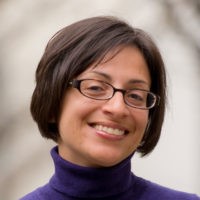By Shirin Vakharia
Director Health & Aging, Marin Community Foundation
Despite a booming economy, California has one of the highest rates of senior poverty in the country. In Marin County, approximately 25 percent of the population 65 and over have incomes below the Elder Self Sufficiency Standard (Elder Index). Older women and older women of color are disproportionately impacted by economic insecurity. Economic hardship among older adults is related to increased health care costs — burdening both the health care system and the individual; greater utilization of institutional care; poor quality of life and poor health status.
For individuals who rent, a fixed income is not adequate to keep pace with increasing housing costs. In Marin County, approximately 54 percent of older adults with incomes below the Elder Index rent, and of those who rent, more than two-thirds spend more than 60 percent of their income on rent. According to the Zillow Rent Index, since 2010, Marin County has experienced a 57 percent increase in market rent further stressing the financial situation of lower income older adults.
Research shows that women, single people, and people of color are at higher risk of experiencing economic insecurity in older adulthood. This is often due to a gender and racial wealth gap that persists across the lifespan. Factors that contribute to these wealth disparities include gaps in employment due to caregiving responsibilities, and the declining availability of workplace retirement plans ― especially for low-wage workers. More recently, older adult economic insecurity has been rising in populations that did not experience poverty during their working years. High housing costs, the 2008 recession, and rising out-of-pocket health care expenses have left many older people economically insecure. On average, at just over $1,300 a month, Social Security only covers 44 percent of a person’s basic needs in California, leaving many older adults who rely on social security as their primary source of retirement income vulnerable to fluctuations in their expenses.
In 2014, in response to these trends, the Marin Community Foundation launched the Older Adult Economic Security initiative which is designed to improve economic security for older adults living below the Elder Index. Thus far, grants have been made to Community Action Marin’s SparkPoint Marin Center and the YWCA San Francisco & Marin for their Fifty+ Program. Through these investments in both direct services as well as in fostering partnership and greater alignment among these two organization, MCF seeks to support efforts to address older adult economic security through comprehensive strategies that include financial coaching services, benefits enrollment, service connection and employment.
The constellation of factors that impact the economic well-being of older adults requires a variety of actors across systems and sectors to come together in new ways to reduce fragmentation in the service delivery system; bring more attention to this often hidden problem; and advocate for stronger public policy. To bring more attention to the economic well-being of Marin’s older adults, MCF in partnership with a planning committee are hosting a summit for advocates, policy makers and service providers. The All.Together.Now summit scheduled for February 1, 2019 will focus on both service delivery and policy strategies to advance economic security emphasizing the critical role that multi-sector collaborations can play in strengthening the service delivery system and advancing public policy.
The Aging Action Initiative provides a constructive platform from which to organize stakeholders to tackle problems and leverage opportunities that are beyond the scope of any one particular organization or sector. Join us at the Feb. 1 All.Together.Now summit and stay tuned for opportunities in 2019 to come together to find ways to improve the economic well-being of older people in Marin.



